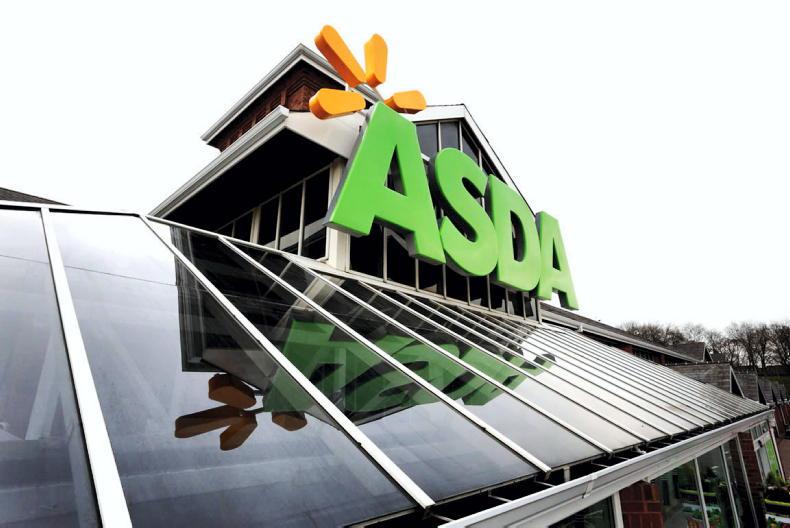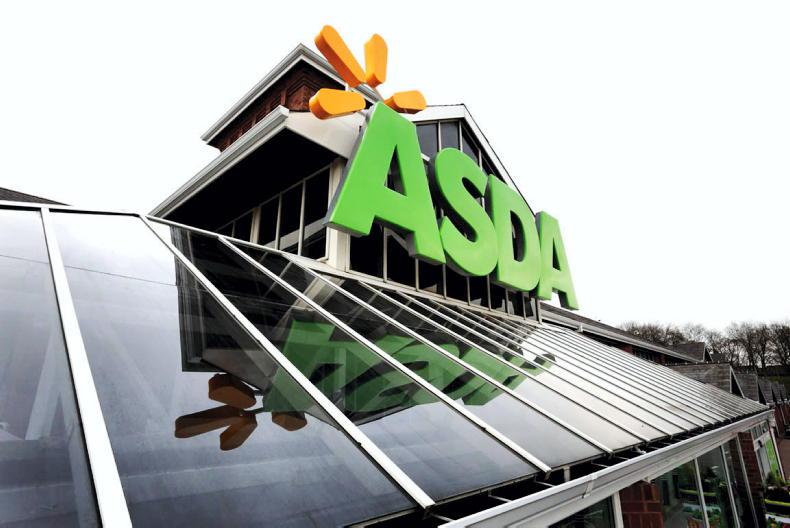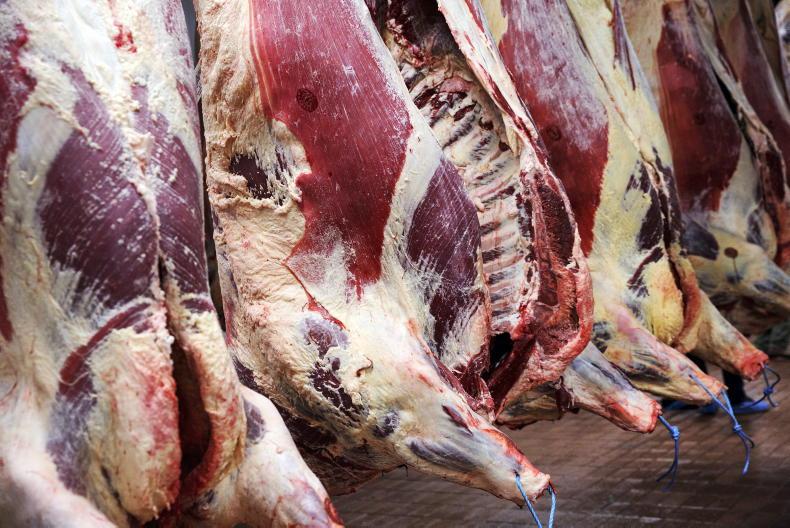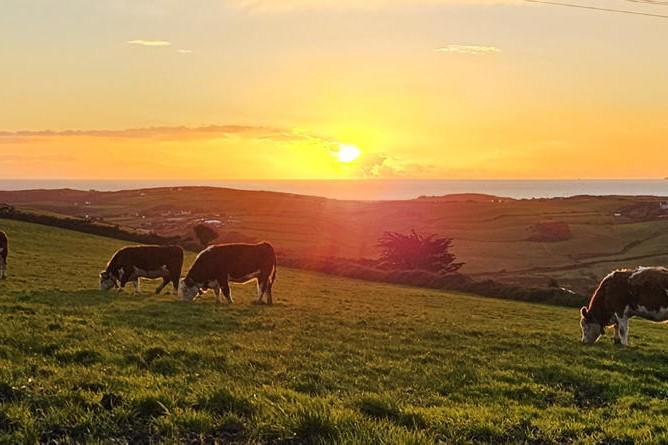The Irish Farmers Journal has learned that UK supermarket group Asda is in the process of moving to a 100% British beef offering in line with a commitment made by its owners when buying the group from Walmart last October. This is a particular setback for Irish beef sales in Britain, because Asda was the one of the big three supermarkets that regularly stocked the highest percentage of Irish beef alongside British beef.
According to the most recent AHDB survey in January 2021, 63% of Asda beef was British, meaning that 37% was Irish, as all of its fresh beef was British or Irish. It is understood that the company won’t close the door completely, but from now on, its primary beef offering won’t include Irish beef.
This matters for Irish farmers, because the retail sector is the best customer for beef and pays much better than the wholesale and food service markets that are serviced primarily by imported beef.
To this point, Irish beef accounts for between 75% and 80% of this, with the balance from EU and South American countries. In time to come, with UK trade policy opening the door wide for imports, this market segment for Irish exporters is likely to come under serious price pressure, even if Ireland remains the preferred importer because of convenience.
There also has to be concern about Tesco and Sainsbury’s reaction. In the same survey by AHDB, Tesco had 72% British beef and Sainsbury’s had 92%, leaving 28% and 8% for Irish supplies respectively.
With Sainsbury’s attracting the interest of a venture capital-funded takeover, there is a risk that it too will follow Asda and Britain will become like France with the retail sector closed to Irish beef. If that were to happen, it would put serious pressure on our supply chain, given that the UK is only 80% self-sufficient for beef and even less for prime beef that is required for supermarket specifications.
It creates a serious opportunity for beef producers in Northern Ireland, but only for cattle that are born there, as imports from the south don’t qualify. If the Asda policy pushes the UK beef price to an even higher level and creates a bigger gap with Irish beef price, the temptation will increase to make exceptions for Irish supplies.
Where does this leave Irish beef?
The Asda move shows that Irish beef is essentially a commodity that will be traded in UK, EU or global markets depending on their respective values at any given time. It doesn’t command a loyalty in the way that British does.
With our elite production standards and overall quality, we can be the preferred import in the UK and Europe, though it will be a price sensitive market. In Asia, premium status is reserved for grain-fed US, Canadian and Australian beef. Ultimately, Irish beef is a premium product in a commodity market.
Risk of Irish beef being squeezed
Last week’s revelation of Brazil’s beef herd increase by the Irish Farmers Journal is notice that international beef markets will be well supplied for the remainder of this decade. Historically, that would have been no more than a passing interest to Irish farmers, because since the EU stopped giving export refunds 20 years ago, Irish beef sales have been confined to the UK and EU, with only offal and by-products sold in wider global markets.
In recent years, that has changed due to the combination of the Irish Government securing access to significant markets outside Europe, most notably the US, Japan and in 2019, China, plus a surge in cattle prices in South America and Australia.
Interestingly, while Australian prices of €4.50/kg have been driven by drought, Brazil’s prices have improved by €1/kg because of unprecedented demand from China. Irish prices have this summer reached their highest levels since 2013 and there is a temptation for beef producers to think that the corner on financial viability for the industry has been turned.
Clouds gathering
Unfortunately, this could be as good as it gets. Further squeezing of Irish farmers by EU regulation and requirements to qualify for CAP payments look like they will impact negatively on incomes for many farmers.
On markets, it is clear that expansion of production in Brazil is likely to take up any extra demand that comes from Asia, especially China, where Rabobank is confident in demand for beef for the remainder of this decade.
Despite securing access, the US, Japan and China still account for a small if increasing amount of Irish beef sales. The UK has been and will continue to be our foremost market for beef and what happens there is of the greatest significance for Irish farmers.










SHARING OPTIONS